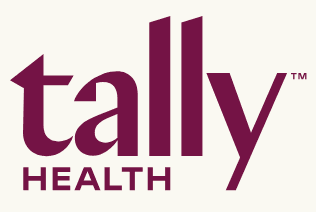Genetic testing is a hot topic these days. It can tell you a lot about your health and what diseases you might get in the future. But is it the right choice for you? It's not always a simple decision. This article will help you understand the pros and cons of genetic testing so you can make the best choice for yourself.
Key Takeaways
- Genetic testing can help detect diseases early, which can lead to better treatment options.
- It can provide personalized treatment plans tailored to your genetic makeup.
- Knowing your genetic risks can help you and your family make informed health decisions.
- There are emotional and privacy concerns that come with genetic testing.
- Always talk to a healthcare professional before making a decision about genetic testing.
Understanding Genetic Testing
What is Genetic Testing?
Genetic testing is a medical test that looks at your DNA, the chemical database that carries instructions for your body's functions. It can reveal changes or mutations in your genes that may cause illness or disease. This test can help you understand your risk for certain health conditions and guide you in making informed health decisions.
Types of Genetic Tests
There are several types of genetic tests, each serving a different purpose:
- Diagnostic Testing: Identifies or rules out a specific genetic condition.
- Predictive and Pre-symptomatic Testing: Estimates the risk of developing a genetic disorder before symptoms appear.
- Carrier Testing: Determines if you carry a gene for a genetic disorder that could be passed to your children.
- Prenatal Testing: Checks for genetic abnormalities in a fetus.
- Newborn Screening: Tests newborns for certain genetic conditions that can be treated early in life.
- Pharmacogenomic Testing: Helps determine how your genes affect your response to medications.
How Genetic Testing Works
The process of genetic testing usually involves a few simple steps:
- Sample Collection: A sample of your blood, saliva, or other tissue is collected.
- Laboratory Analysis: The sample is sent to a lab where technicians look for specific changes in your DNA.
- Results Interpretation: A genetic counselor or healthcare provider explains the results and what they mean for your health.
Genetic testing can provide valuable insights, but it's important to understand its limitations and consult healthcare professionals for guidance.
Benefits of Genetic Testing
Early Detection of Diseases
Genetic testing can help find diseases early, sometimes even before symptoms show up. This early detection can lead to better treatment options and outcomes. For example, if a test shows a high risk for a certain type of cancer, doctors can start monitoring and treating it sooner.
Personalized Treatment Plans
With genetic testing, doctors can create treatment plans that are tailored to your specific genetic makeup. This means that the treatments you receive are more likely to work for you. It can also help avoid treatments that might not be effective or could cause harmful side effects.
Informed Family Planning
Knowing your genetic information can help you make better decisions about starting a family. If you know you carry genes for certain diseases, you can discuss options with your doctor. This can include things like special tests during pregnancy or considering other ways to have children, like adoption or using a donor.
Risks and Limitations of Genetic Testing
Emotional and Psychological Impact
Genetic testing can sometimes lead to increased stress and anxiety. Learning about potential health risks can be overwhelming and may affect your mental well-being. It's important to be prepared for the emotional impact of the results.
Privacy Concerns
Your genetic information is highly personal. There are concerns about how this data is stored and who has access to it. Unauthorized access to your genetic data could lead to privacy breaches.
Potential for Inconclusive Results
Not all genetic tests provide clear answers. Some results may be inconclusive or uncertain, leaving you with more questions than answers. This can be frustrating and may require further testing or consultation with healthcare professionals.
Genetic testing has its benefits, but it's crucial to weigh these against the potential risks and limitations. Make sure to consult with healthcare professionals to make an informed decision.
Ethical and Social Considerations
Genetic Discrimination
Genetic testing can reveal a lot about a person's health, but it can also lead to genetic discrimination. This happens when people are treated unfairly because of their genetic information. For example, employers or insurance companies might use this information to make decisions about hiring or coverage.
Impact on Family Dynamics
Learning about genetic risks can change how family members relate to each other. Some might feel guilty or worried about passing on certain genes. Others might feel stressed about their own health. It's important to talk openly with family members and consider genetic counseling.
Ethical Dilemmas in Testing
Genetic testing raises many ethical questions. For instance, should parents test their children for genetic conditions? What if the child doesn't want to know? These questions don't have easy answers and often require careful thought and discussion with healthcare professionals.
Genetic testing can provide valuable information, but it's important to consider the ethical and social implications before making a decision.
Making an Informed Decision
Consulting Healthcare Professionals
Before deciding on genetic testing, it's crucial to talk to healthcare professionals. They can provide insights into the benefits and risks. Genetic counselors are especially helpful as they can explain the testing process and what the results might mean for you and your family.
Evaluating Your Personal Risk
Consider your personal and family medical history. This can help you understand your risk for certain genetic conditions. A healthcare provider can guide you through this evaluation, helping you decide if genetic testing is a good option.
Considering the Costs
Genetic testing can be expensive. It's important to check if your insurance covers the test. If not, you might need to pay out-of-pocket. Make sure to weigh the costs against the potential benefits.
Making an informed decision about genetic testing involves understanding the process, evaluating personal risks, and considering the financial aspects. Consulting with healthcare professionals can provide the necessary guidance.
Alternatives to Genetic Testing
Lifestyle and Environmental Factors
While genetic testing can provide valuable insights, lifestyle and environmental factors play a crucial role in your overall health. Simple changes like eating a balanced diet, exercising regularly, and avoiding harmful habits such as smoking can significantly reduce your risk of developing certain diseases. Additionally, being mindful of your environment, such as reducing exposure to pollutants, can also contribute to better health.
Regular Health Screenings
Regular health screenings are another effective alternative to genetic testing. These screenings can help detect potential health issues early, allowing for timely intervention. Common screenings include blood pressure checks, cholesterol tests, and mammograms. By staying on top of these routine tests, you can maintain better control over your health.
Preventive Healthcare Measures
Preventive healthcare measures are proactive steps you can take to avoid illness. This includes vaccinations, routine check-ups, and adopting a healthy lifestyle. Preventive measures are often less invasive and can be just as effective in maintaining good health as genetic testing. They also offer the advantage of being widely accessible and generally more affordable.
Taking charge of your health doesn't always require genetic testing. Simple, everyday actions can make a big difference in your well-being.
Conclusion
Deciding whether to take a genetic test is a personal choice that comes with both benefits and drawbacks. On one hand, it can provide valuable insights into your health and help you make informed decisions. On the other hand, it can also bring stress and uncertainty. It's important to weigh these factors carefully and discuss them with your doctor. Ultimately, the decision should be based on your individual needs and circumstances. By considering both the pros and cons, you can make the best choice for your health and well-being.
Frequently Asked Questions
What is genetic testing?
Genetic testing is a way to look at your DNA to find changes or mutations that might cause diseases. It can help doctors understand your risk for certain health conditions.
How does genetic testing work?
To do a genetic test, doctors usually take a small sample of your blood, saliva, or other tissue. They then look at your DNA in a lab to find any changes that could affect your health.
What are the benefits of genetic testing?
Genetic testing can help detect diseases early, create personalized treatment plans, and provide information for family planning. It can give you a better understanding of your health risks.
Are there any risks or limitations to genetic testing?
Yes, there are some risks and limitations. It can cause stress and anxiety, raise privacy concerns, and sometimes give inconclusive results. It's important to weigh these factors before deciding to get tested.
Can genetic testing affect my family?
Yes, the results can impact your family. It might reveal information about their health risks too. It's important to discuss this with your family before getting tested.
Should I talk to a doctor before getting a genetic test?
Absolutely. Consulting with a healthcare professional can help you understand the pros and cons of genetic testing and whether it's right for you.
























